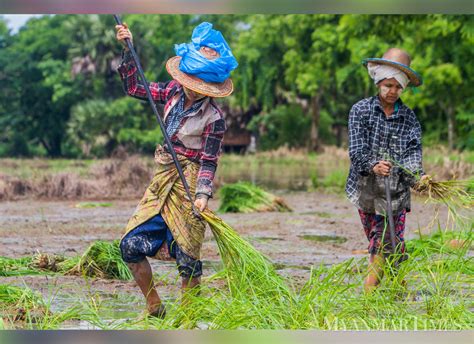The British Impact on Myanmar By Hillary Htun (NEW YORK)
MoeMaKa, 27th Sept 2022
Last year when I was taking World History, it was part of the required curriculum to learn about south, east, and southeast Asia. These regions had a large influence on the Europeans (especially on the country’s economy) so it was important to see how these places interconnected. The most prominent countries of these regions were obviously those like China, India, Vietnam, Korea, and Japan. My teacher spent entire classes (72 minutes) going over material on them. But, what stood out to me was seeing Myanmar mentioned in the standard AP World History textbook. It appeared maybe 4 times at most, and I would bet money that the majority of students in my class still don’t know Myanmar exists. Though it was still shocking to see it mentioned as part of standardized education.
I was jubilant to see my country’s name appear, but also somewhat disappointed. The textbook never went into depth about the impact that decades of colonialism and imperialism had on the country, particularly with Britain or Japan. And as someone who grew up hearing about the outside influences on Burma/Myanmar, I wanted to know more details about this subject. So in lieu of the major events recently happening, I decided to look into Britain’s influence on Myanmar.
Before the British annexed Burma in 1885, the country’s political and religious structures were significantly different. Burma was a monarchy and contained a patriarchy of Burmese clergy. The monarchy could indirectly control this Burmese clergy through the Sangha, the Buddhist monastic order. Since the patriarch was able to denounce a monk from their religious position, this ability could be wrongfully used and exploited. So in order to prevent the possible abuse of power, the monarchy was also given the privilege to do the same action. And in addition, they were the ones who appointed such officials to the patriarch. By combining these two powers over the clergy, the monarchy maintained control. Although it sounds like a one sided benefit, the Burmese monarchy worked side-by-side with the Sangha. It would provide major financial and moral support for them, which in turn allowed the Sangha to become the main source of education for Burmese people. The Burmese monarchy and the Sangha were the foundation of the country’s political and religious structure.
However after Burma lost its independence following the third Anglo-Burmese war, the British completely destroyed the monarchical system. They sent King Thibaw into exile, and the British officially had direct rule over the country. As a result, the Sangha lost its role as the main source of education, and the clergy was left uncontrolled (though it would soon be removed as well.) Secular education and mission schools then started appearing throughout Burma. Within these schools, missionary teachers would constantly criticize Buddhism in order to promote the conversion to Christianity.
The economy’s status was also noticeably altered from British colonialism. Before, Burma had mainly relied on its own agriculture to maintain a stable economy. It would also trade with other countries, however this wasn’t much of a concern. After the British gained control of Burma, the country would have an export reliant economy. They would go on to turn millions of acres of land solely for rice farming. This meant that farmers had to get loans to pay for this land; however, they had to rely on Indian loaners since British banks didn’t provide mortgages. Prices for rice and land began increasing and then, the Great Depression hit. The three of these factors combined caused Indian loaners to foreclose their previous mortgage deals. Consequently, farmers all around the country no longer had land and subjected themselves to crime. Not only did the British influence on Burma’s economy cause it to collapse, but now Burmese people were seen as the inferior race for acting uncivilized.
After researching these topics, I feel satisfied from finally learning some details behind what people alluded to but never discussed. Ironically, it’s like I know more information than my own textbook does. However there are other British influences, like the spread of nationalism or the rise of various protesting groups, that I still haven’t looked into yet. And additionally, I didn’t investigate Japan’s influence on Myanmar either. So in the future, I hope to continue my personal research and be able to learn more about these topics.
Hillary Htun (NEW YORK)

